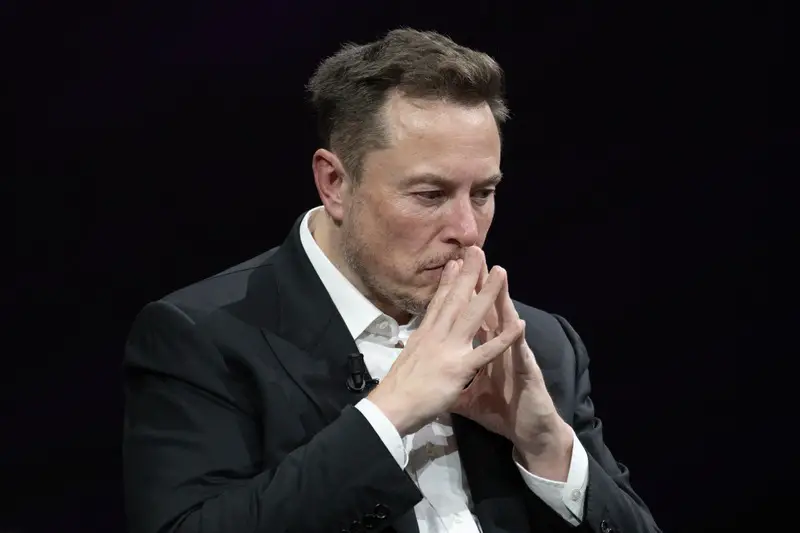Elon Musk, recognized as the world’s wealthiest individual and now an adviser at the White House, responded defensively when questioned by reporters about his meeting with Secretary of Defense Pete Hegseth at the Pentagon on Friday, March 21. When asked about the discussions held during their 90-minute session, Musk curtly replied, “Why should I tell you?”
The visit generated controversy after The New York Times reported that Musk was scheduled to receive a briefing on classified plans regarding a potential conflict with China. President Donald Trump, Musk, and Hegseth all firmly denied this characterization of the meeting.
The Wall Street Journal independently confirmed the Times’ report but noted that after the report was published, the plans changed. According to military officials cited by the Journal, Musk and Hegseth instead engaged in an unclassified discussion that still included China among other subjects.
Musk’s business interests in China are significant, particularly through Tesla, which operates its largest factory in Shanghai. This facility produces about half of all Tesla vehicles. Musk has previously expressed positive views about China, even calling himself “pro-China” in a recent interview.
These extensive business ties with China have raised concerns about potential conflicts of interest, especially as Musk takes on a more influential role in the Trump administration. The Wall Street Journal reported that Musk had actually requested the information about the China war plan, according to an inside source.
As Musk left the Pentagon, he shook hands with Hegseth and expressed his readiness to assist, suggesting they connect if any help was required. To reporters, he commented on the positive nature of the meeting and mentioned it wasn’t his first visit to the Pentagon.
Before the meeting, Musk had taken to X to dispute the Times’ report, calling it “pure propaganda” and threatening those behind the leaks. “I look forward to the prosecutions of those at the Pentagon who are leaking maliciously false information to NYT,” he posted. “They will be found.”
When questioned about the Journal’s reporting, the White House directed inquiries to statements made by Trump and Hegseth during an Oval Office conversation later that day. Both reiterated their denial of the Times’ story.
During a televised discussion with Pete Hegseth, Trump stated that he did not want to share the China war plan with anyone, stressing the seriousness of discussing potential conflict with China. He emphasized that such a document should not be shown, particularly to a businessman who was providing significant assistance.
President Trump acknowledged that Musk’s business interests could make him “susceptible,” but maintained that The New York Times report was “such a fake story.” Trump also criticized the newspaper, calling it “garbage” and a “failing newspaper,” adding, “They really are the enemy of the people. We do need honest journalism. We’ve made such big strides over the last two months. But we just need honest journalism, and we don’t have it.”
Standing beside the president, Hegseth defended Musk and suggested the story was meant to undermine the Pentagon’s relationship with Elon Musk. He praised the billionaire, saying, “Elon Musk is a patriot. Elon Musk is an innovator. Elon Musk provides a lot of capabilities our government and our military rely on, and I’m grateful for that.”
Hegseth described the Pentagon meeting as focusing on initiatives related to the Department of Government Efficiency (DOGE), which Musk leads. “We welcomed him today to the Pentagon to talk about DOGE, to talk about efficiencies, to talk about innovations. It was a great informal conversation,” Hegseth said.
However, Hegseth did not address the Journal’s reporting that the conversation still included a discussion of China.
Musk’s visit has drawn criticism from some lawmakers, including Senator Kirsten Gillibrand, who questioned the appropriateness of his presence at the Pentagon. Gillibrand believes Musk should not have been there as an “unelected, self-interested billionaire.”
Beyond Tesla, Musk’s companies have significant relationships with the federal government. SpaceX holds approximately $22 billion in federal contracts. This dual role as both a government contractor and advisor has raised additional concerns about potential conflicts of interest.
Musk’s role in the Trump administration has expanded rapidly since the 2024 election. He was appointed to lead the Department of Government Efficiency, tasked with identifying waste and inefficiencies in federal agencies. This position gives him considerable influence over government operations while he continues to run his private companies.
The incident highlights the complex and sometimes controversial relationship between Musk, the Trump administration, and China. As Musk continues to straddle the worlds of business and government, questions about potential conflicts of interest are likely to persist.











